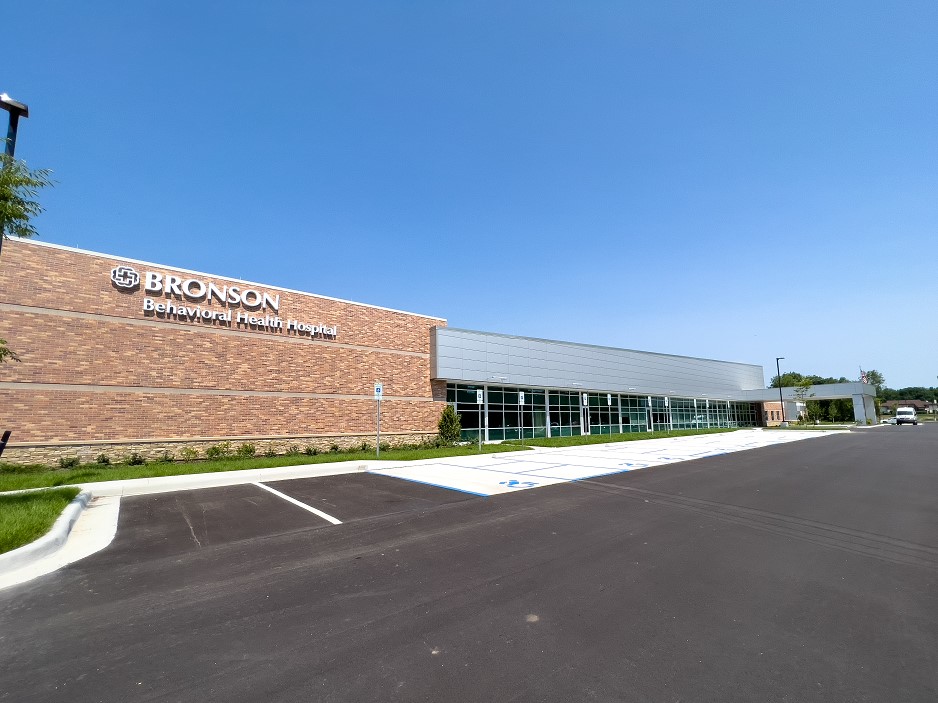Substance abuse can negatively affect people on a physical, emotional, and social level. Without professional addiction treatment, those who are struggling with substance use disorders may face difficulties that seem impossible to overcome. However, addiction can be effectively treated with the help of qualified experts.
Bronson Behavioral Health Hospital offers inpatient care for adults who are struggling with mental health concerns and co-occurring addictions. Our patients can receive clinically excellent care that helps them live healthier, happier lives.
Signs & Symptoms of Addiction
The signs and symptoms of addiction can vary from person to person depending on the substance they are using, how long and how frequently they’ve used it, and other factors, such as age and background. However, there are common physical and behavioral signs and symptoms of addiction.
As the brain adapts to the continued use of a substance, it begins to change. As a result, substance abuse can alter the way a person thinks, feels, and acts.
Common physical signs and symptoms of addiction include:
- Using a substance to manage stress or to feel pleasure
- Trying and failing to end or reduce the use of a substance
- Changes in weight and energy levels
- Experiencing withdrawal symptoms when you’re not using a substance as much or as often as you usually do
- Developing a need to use more of the substance to achieve the same effects you once experienced when taking less of the substance
- Intense cravings for a substance that may sometimes lead to taking extreme or illegal action to get the substance
- Needing to use a substance every day, or even multiple times throughout the day
As a person’s thoughts and feelings change in response to addiction, their actions can change. Common behavioral signs and symptoms of addiction include:
- Continuing to use a substance even when it’s negatively impacting your life
- Poor personal hygiene
- Using a substance when it is dangerous or inappropriate to do so
- Neglecting typical activities and responsibilities
- Withdrawing from friends and family
- Lying about how much or how often you’re using a substance
- Using a substance alone or in secret
- Impaired judgment
- Spending increasing amounts of time finding, using, and then recovering from the use of a substance
- Using a substance for a longer period or in larger amounts than you intended
If you are experiencing any of these symptoms, getting professional help is critical. You can begin to heal by receiving addiction treatment as soon as possible.
Common Causes of & Risk Factors for Addiction
Researchers continue to study the causes of and risk factors for addiction. There is no singular reason why a person may develop an addiction. However, those who struggle with addiction may be affected by various genetic, social, and environmental factors.
Genetic risk factors for addiction can include:
- Immediate family members who had or have addictions
- Personality traits such as risk-seeking tendencies and impulsiveness
- Co-occurring mental health concerns
Social and environmental risk factors for addiction can include:
- Peer pressure to use addictive substances
- Socioeconomic struggles such as unemployment
- Social isolation or loneliness
- Media influence
- Access to addictive substances
- Stressful environment at home or work
- Trauma or abuse
Understanding the risk factors for addiction can help people gain understanding and perspective. However, no matter what causes addiction, you can heal and feel healthier. A behavioral health professional can help you understand your diagnosis and receive the care you need to get better.
Addiction Statistics
Millions of Americans struggle with addiction and its devastating effects. The good news is that addiction is treatable. However, only a small percentage of those who are experiencing symptoms of addiction receive help. The Substance Abuse and Mental Health Services Administration (SAMHSA) recently reported the results of a survey outlining substance abuse in America in 2020:
- Approximately 17 million adults age 18 and older had a substance use disorder and a co-occurring mental health disorder.
- Only around 10% of people age 12 and older who met the criteria for a substance use disorder diagnosis received professional help.
- Substance use disorders were most prevalent among adults ages 18-25.
- 40.3 million Americans age 12 and older met the criteria for a substance use disorder diagnosis.
Potential Effects of Addiction
Addiction can have a wide range of negative effects on individuals, their families, and their social networks. Common effects of addiction include:
- Physical health consequences: Substance abuse can lead to various physical health problems, such as organ damage, heart issues, respiratory problems, and the increased risk for infectious diseases. People who struggle with substance use disorders can face worsening existing health conditions or the development of new ones. Ultimately, those who have addictions can suffer from accelerated deterioration of their physical health.
- Co-occurring mental health concerns: Addiction often co-occurs with mental health disorders. Substance abuse can worsen symptoms of co-occurring mental health concerns such as anxiety, depression, bipolar disorder, and schizophrenia. It can also contribute to the development of new mental health disorders.
- Impaired thinking skills: Prolonged substance abuse can lead to cognitive impairments that affect memory, attention, decision-making, and problem-solving abilities.
- Financial hardship: The costs of an addiction can drain your finances. Buying substances, legal fees related to substance abuse, and lost productivity or employment can lead to financial ruin over time.
- Legal trouble: Drug possession, driving under the influence, and engaging in other illegal activities to support untreated addiction can result in arrests, fines, and even incarceration.
- Risky behavior and accidents: Substance abuse can impair judgment, coordination, and reaction time, all of which can lead to an increase in accidents and injuries.
- Emotional and psychological distress: When someone tries unsuccessfully to quit using a substance that is negatively affecting their life and the lives of those around them, they can experience feelings of guilt, shame, and low self-esteem.
- Interpersonal conflicts: Addiction can lead to strained relationships with friends and family due to broken trust, conflicts, and neglect. Social withdrawal can also be an effect of addiction.
If you are experiencing addiction symptoms, getting professional help can make a difference in your life and the lives of those who care about you. You can heal and avoid the devastating effects of addiction.
Addiction Withdrawal Symptoms
Withdrawal symptoms occur when a person abruptly stops or reduces their use of an addictive substance after regular use. These symptoms can vary depending on the addiction and the person’s circumstances. Common withdrawal symptoms include:
- Alcohol withdrawal: Sweating, tremors, nausea, anxiety, insomnia, hallucinations, and seizures
- Opioid withdrawal: Muscle aches, restlessness, anxiety, insomnia, vomiting, diarrhea, and dilated pupils
- Benzodiazepine withdrawal: Anxiety, insomnia, irritability, sweating, tremors, and seizures
- Stimulant withdrawal: Fatigue, depression, increased appetite, irritability, and paranoia
The severity and duration of withdrawal symptoms can vary depending on several factors, such as the presence of an underlying mental health disorder, the length and intensity of the untreated addiction, and individual body chemistry. If you are experiencing the symptoms of withdrawal, reach out to a behavioral health professional who can help you stabilize and begin healing.
Overdose Symptoms
The signs and symptoms of drug overdose can vary depending on the substance. However, if a loved one is experiencing any of the following common overdose symptoms, get medical help immediately:
- Slowed or shallow breathing
- Bluish lips or fingernails
- Pinpoint pupils
- Loss of consciousness
- Unresponsiveness
- Increased heart rate
- Chest pain
- Seizures
- Delirium
- Extreme drowsiness
- Disorientation
- Extreme vomiting or choking
- Very high or low body temperature
If you suspect an overdose, call emergency services. Once your loved one is stabilized, you can consult with a behavioral health professional who can offer them the help they need to heal.
Common Underlying or Co-Occurring Disorders
Addiction often co-occurs with various mental health concerns. The relationship between addiction and mental health is complex, and the presence of one condition can increase the risk for developing the other. It is important to seek professional help for underlying or co-occurring mental health concerns you may have in addition to an addiction.
Mental health concerns that commonly co-occur with addictions include:
- Depression
- Anxiety disorders
- Bipolar disorder
- Posttraumatic stress disorder (PTSD)
Mental health concerns can come before or follow addiction, and the symptoms can interact in a complicated way. It is best to seek help from behavioral health professionals who treat these disorders simultaneously. Integrated care approaches can most effectively promote long-term health and improved well-being.
This content was written on behalf of and reviewed by the clinical staff at Bronson Behavioral Health Hospital.






